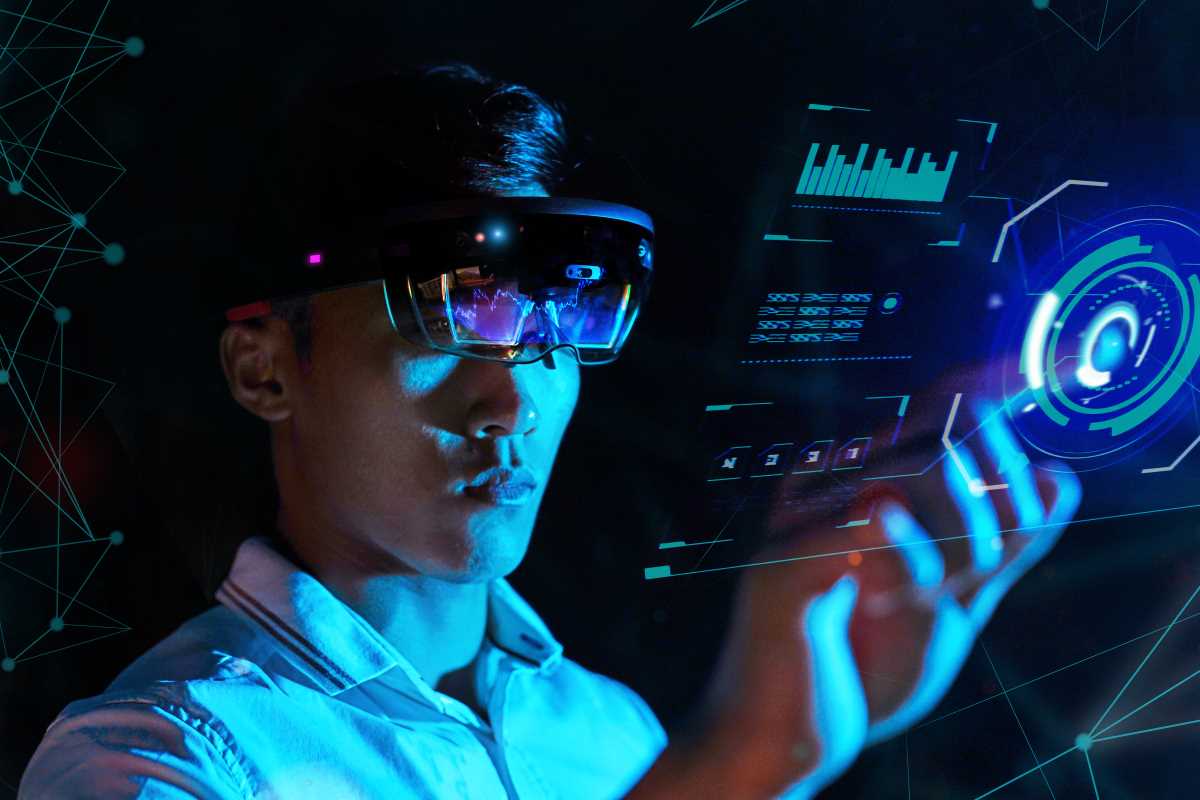If you're thinking about a career in digital marketing, you're stepping into one of the most innovative and fast-growing industries out there. Long gone are the days when marketing was limited to billboards or newspaper ads. Today, it’s all about connecting with people where they spend the majority of their time—in the digital world. And thanks to the rise of Artificial Intelligence (AI), digital marketing has evolved into something faster, smarter, and much more dynamic.
Whether you're a curious beginner or someone with some hands-on experience, investing in a degree in digital marketing can be a game-changer for your career. But how does AI fit into this puzzle, and why should it matter to you? Stick around as we explore everything from the fundamentals of digital marketing to how AI is revolutionizing the field, and why getting a formal education in this area could open the door to incredible opportunities.
What Is Digital Marketing, Anyway?
At its core, digital marketing is the practice of promoting products, services, or brands using digital platforms. This includes everything from search engines and email to social media platforms and even mobile apps. The goal? Reaching the right audience, at the right time, through the right channels.
But it’s much more than just posting pictures on Instagram or creating snappy tweets. Effective digital marketing requires a mix of strategy, creativity, and technical know-how. Here’s a snapshot of the skills and techniques you’ll need to master:
- Analytics: Understanding data is crucial to deciphering customer behavior, measuring campaign success, and figuring out ROI (return on investment). Tools like Google Analytics or Hotjar reveal insights about who’s visiting your site and what they’re doing there.
- Search Engine Optimization (SEO): This is about making your content visible. SEO strategies help your website rank higher on Google so that your audience finds you instead of your competitors.
- Social Media Marketing: Whether it’s crafting viral TikToks or networking on LinkedIn, social media is often the first point of contact between a brand and potential customers.
- Email Marketing: Sending effective emails is an art form. Whether it’s a welcome email to new subscribers or a personalized coupon, the goal is to nurture leads and build long-term relationships.
- Content Marketing: From blogs and videos to infographics, content marketing is all about delivering valuable information that attracts and retains an audience.
Now, add AI into the mix, and you’ve got a game-changing layer of automation, data interpretation, and efficiency that’s reshaping how marketers do what they do best.
How AI Is Changing the Game in Marketing
AI is rewriting the rules of marketing. Rather than replacing marketers, it empowers them to work smarter and scale efforts in ways that were unimaginable a few years ago. Here’s a closer look at how AI is already reshaping the landscape:
1. Hyper-Personalized Campaigns
One of the most revolutionary applications of AI in digital marketing is personalization. Modern consumers expect tailored experiences; they want ads, content, and offers that fit their preferences like a glove. AI makes this possible by sifting through oceans of data in seconds. For example:
- Retail giants like Amazon use AI to recommend products based on a user’s past purchases and browsing behavior.
- Streaming services like Netflix apply machine learning to suggest shows and movies tailored to individual tastes.
By integrating AI tools, even smaller businesses can personalize email campaigns, website content, and product recommendations in ways that feel authentic and relevant.
2. AI-Powered Chatbots
Chatbots have become standard on websites, and for good reason. These AI-driven assistants are capable of answering frequently asked questions, recommending products, and even upselling. Unlike human customer service reps, they’re available 24/7.
A great example is Sephora’s chatbot, which helps users find makeup products, provides tutorials, and answers questions about beauty tips. Chatbots not only improve customer experience but also reduce costs for companies by minimizing the need for a large support team.
3. Smarter Ad Targeting
Ever wondered why an ad for running shoes pops up the day after you search for “best marathons near me”? AI drives predictive analytics and audience targeting, ensuring that your ads reach the people most likely to be interested. Platforms like Google Ads and Facebook Ads use AI to analyze your browsing behavior, interests, and previous interactions to deliver laser-focused ads.
4. Content Creation and Curation
AI tools like ChatGPT, Jasper, and Canva use machine learning to support content creators. These tools generate blog drafts, suggest improvements for captions, and even help design engaging visuals. For instance, AI can suggest the best time to post on social media or recommend trending hashtags for greater visibility.
While not a replacement for human creativity, these tools help marketers focus on strategy and storytelling instead of spending hours perfecting minor details.
5. Predictive Analytics
AI doesn’t just collect data; it makes sense of it. Predictive analytics tools like HubSpot or Salesforce can forecast market trends, helping marketers stay ahead of the curve. For example, a fashion retailer might use predictive analytics to stock up on trending styles before their competitors even realize what’s popular.
By combining AI’s analytical power with a human touch of creativity, digital marketing is transforming from an art into a data-backed science.
Why a Degree in Digital Marketing Matters
It’s true that you can self-learn digital marketing through online videos or experimentation, but a structured education offers unparalleled advantages. Here’s why a degree is a worthwhile investment:
- Comprehensive Knowledge: A formal program covers all the bases—from the creative aspects of social media to the technical details of SEO and analytics. You’ll also gain hands-on experience with industry-standard tools like Facebook Ads Manager, SEMrush, and Tableau.
- AI-Focused Curriculum: Many schools are now integrating AI courses into their marketing programs, teaching students how to use machine learning for audience analysis, campaign automation, and more.
- Networking Opportunities: Degrees don’t just teach skills; they help you build connections with classmates, professors, and guest lecturers who could later become collaborators or mentors.
- Career Credentials: A degree demonstrates to potential employers that you’re serious about your craft. It can set you apart in a competitive job market.
What to Expect in a Digital Marketing Program
Wondering what you’ll actually study? Digital marketing coursework is designed to prepare you for the demands of this dynamic field. Here’s a breakdown:
Core Classes
Students typically begin with foundational courses covering topics like:
- Digital Strategy and Campaign Development: Learn to map out objectives, budgets, and timelines.
- Social Platform Marketing: Deep dives into platforms like Instagram, TikTok, Facebook, and LinkedIn.
- SEO Fundamentals: Master the techniques that get content noticed by search engines.
- Paid Media Advertising: Optimize ad campaigns on platforms like Google Ads to maximize ROI.
Specialized AI-Focused Classes
Given the growing importance of AI, marketing programs now include:
- AI and Data Analytics: How to interpret large data sets using AI tools.
- AI for Content & Automation: Learn to set up chatbots, automate email flows, and schedule social posts.
- Marketing Ethics in AI: Explore the boundaries of data privacy and how to ethically harness AI for marketing.
Real-World Applications
A good program includes internships, case studies, and projects that mimic real-world challenges. For example, you might design a campaign for a mock business using AI analytics or develop an SEO plan for a nonprofit.
Career Opportunities After Graduation
Digital marketing degrees open doors to exciting and diverse career paths. Some common roles include:
- SEO Specialist: Help businesses rank higher on search engines through strategy and optimization techniques.
- Social Media Manager: Run profiles for brands, engage audiences, and create content.
- Marketing Analyst: Use data to measure campaign success and inform future strategies.
- AI Specialists: Work with development teams to refine AI tools for marketing.
- Content Strategist: Plan blogs, videos, and other content to resonate with audiences and meet business goals.
And these are just the beginning. Many digital marketers eventually branch out into consulting, entrepreneurship, or creative leadership roles.
Is Digital Marketing Right for You?
How can you tell if this is the right career for you? Start by asking yourself:
- Do I enjoy blending data analysis with storytelling?
- Am I comfortable with technology and eager to learn new tools?
- Can I thrive in a fast-moving, constantly-evolving industry?
If you’re someone who’s equally excited by analytics reports and brainstorming creative ideas, digital marketing might be your perfect match.







